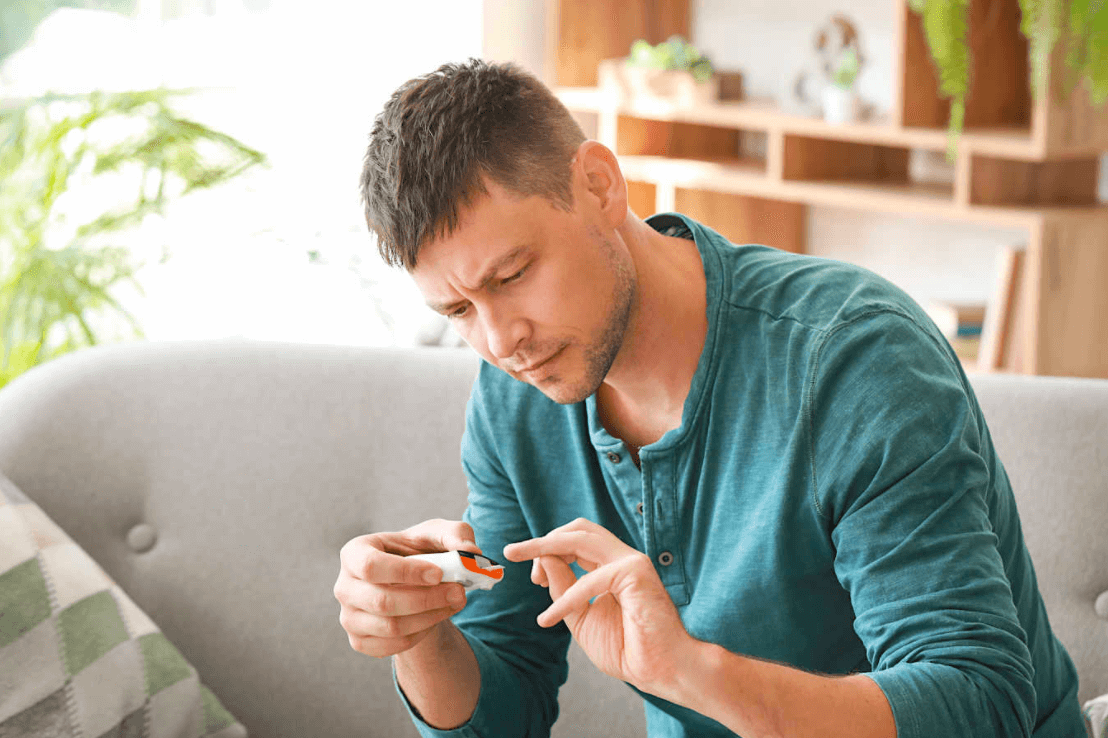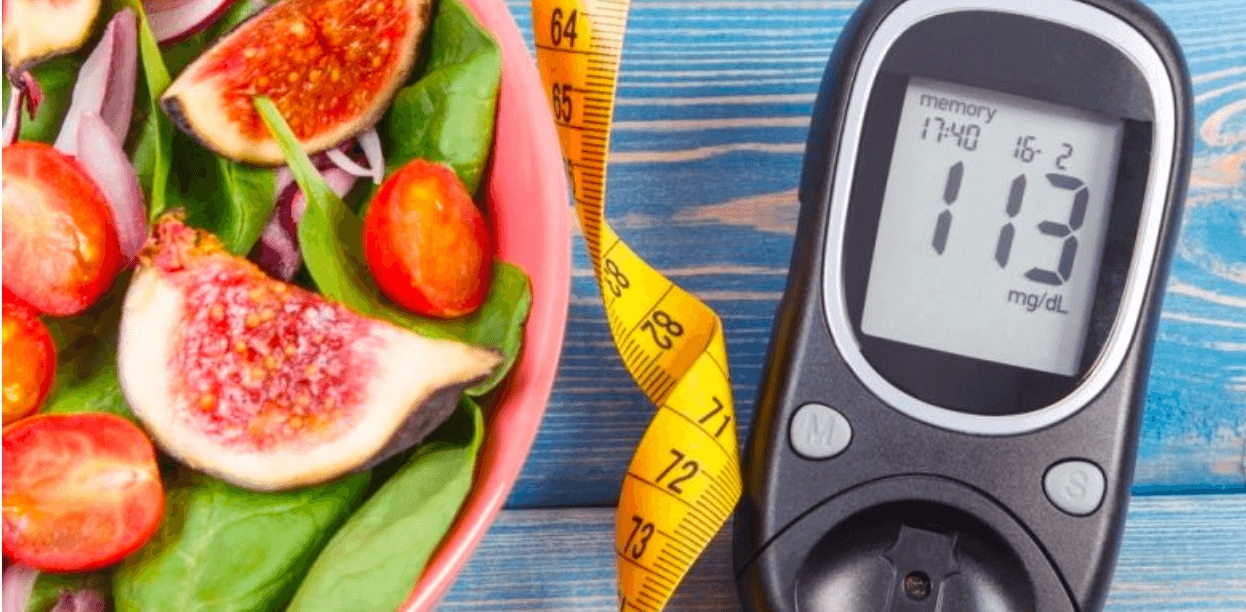How to Lower Morning Blood Sugar Naturally
Reliable diabetes management plans have been shown to be one of the most effective ways for diabetics to maintain low blood sugar levels. However, there are certain times when these plans may not be efficient for ensuring healthy blood sugar levels, and one of these times is in the morning.
A blood sugar spike in the morning is a common occurrence that affects everyone and, in most cases, does not result in complications. However, for people with diabetes, high morning blood sugar could spell danger as their bodies find it difficult to decrease highs to the normal range.
In general, diabetics who follow a strict treatment plan shouldn’t have any issues with minor morning spikes. However, consistent morning high blood sugar should trigger concerns. It negatively affects the A1C reading—a test that measures your average blood glucose/sugar levels over the last three months—and could push it to a dangerous zone.
The good news is that with the appropriate strategy, you can lower blood glucose levels. In this guide, you’ll learn what causes blood glucose levels to increase and how to reduce their effect to ensure you maintain low blood sugar levels, or rather a healthy range.
What questions will be answered in this article?
- Why does your blood sugar spike in the morning?
- How to lower your blood sugar in the morning?
Why does your blood sugar spike in the morning?

Most people with diabetes who stick to their management plan and don’t eat carbs before bedtime wonder why their blood sugars are so high in the morning. According to the American Diabetes Association, there are several reasons why blood sugar increases in the morning.
The organization outlines two major factors as the reason for the morning highs. They include:
- The dawn phenomenon: This is responsible for most blood sugar spikes that people with diabetes experience.
- Waning insulin: This is generally responsible for abnormally high blood sugar levels.
- The Somogyi effect: This is an extremely rare factor responsible for high blood sugar in the morning.
The dawn phenomenon
The dawn phenomenon, as already stated, is the primary cause of blood sugar rise in the morning. It’s so-called because the increase in blood glucose levels starts in the early hours of a new day.
To help you wake up, hormones like cortisol and growth hormone signal the liver to increase glucose production. This triggers the pancreatic beta cells, alerting them to release insulin to ensure a proper balance of the blood sugar levels. This balance helps keep the sugar level in the right proportion.
If you have diabetes, however, your insulin level may be too low to control your blood glucose, or you may have insulin resistance, which makes it hard to control blood sugar levels. This lack of balance in your system causes you to have a blood sugar level by the time you wake up.
Whether you have type 1 or type 2 diabetes, it’s probable that you will experience the dawn phenomenon. However, how bad it gets depends on the consistency of occurrence, which could be on the high side if you frequently consume food with excess sugar.
Waning insulin
People with diabetes may experience a spike in sugar levels if their insulin level drops the night before. Many factors could lead to this drop. The commonest is when the insulin pump that increases insulin provides little basal insulin or if your insulin dose, necessary for boosting insulin level, is too low.
Another factor that may contribute to decreasing insulin in the morning is how long your medication lasts and when you inject long-acting insulin. Whichever may be the case, a lack of enough insulin the night before would automatically lead to waning insulin that cannot keep blood sugar under control.
The Somogyi effect
Even though the Somogyi effect is a rare source of morning blood sugar spikes, it still happens. The effect is named in honor of Michael Somogyi, a Ph.D. scientist that described the term in the early 90s.
The Somogyi effect happens when the human body responds to low blood glucose levels at night.
For example, if a diabetic skips dinner, their blood sugar level may rise slightly, or they may take too much insulin to maintain a low blood glucose level. In that case, their body automatically compensates for the imbalance by releasing glucose during sleep. As such, the person experiences a rise in blood level the following morning.
Since the Somogyi effect is quite rare, most diabetics don’t get to experience it while managing their condition.
Out of the three reasons described above, whatever is causing your blood sugar to rise in the early morning hours, you must identify it and find a strategy to prevent future occurrences. As previously said, consistent rises will damage your overall sugar level, perhaps putting you at risk for a worsened diabetic state and further health complications.
How to lower blood sugar in the morning?

It’s vital to know how to avoid blood sugar rises in the morning if you want to stay healthy. This section describes numerous methods for lowering blood sugar levels in the morning.
Gather the right information
You don’t have to be concerned about morning highs if you have a good diabetes management plan and stick to it, unless you’re certain you experience them. Hence, you must ask yourself some questions to determine if you experience morning spikes and if they’re a concern.
Some of the questions that you should ask yourself include:
- Do I experience a spike in the morning?
- Why is my sugar high in the morning, OR why is my glucose high in the morning?
- Is it consistent enough to cause concern?
If your answer to the three questions above tends to be positive, it’s essential to know how to get to the root cause of your problem. To do this, you have to establish some routine patterns.
Check your blood sugar levels just before you go to sleep, and also repeat the same in the middle of the night. When you wake up in the morning, repeat the process also.
This three-way blood sugar check will help you understand the pattern of your condition, its cause, and if it’s consistent enough to affect your average A1C reading.
However, if you find it difficult to wake up and monitor your blood sugar levels at these three different moments, you should use a Continuous Glucose Monitor (CGM). This device gathers all the data you need without you having to wake between periods of sleep.
Identifying the root cause
The readings you establish after your three-way glucose check will help you and your health care provider narrow your spikes to any of the three factors that generally trigger a high.
If you experience a high just before you go to sleep
If you see a surge in your glucose levels right before bedtime, the most likely cause is food. The type of diabetes medication you take could also be responsible for the high.
The bottom line is that high blood sugar levels in the night will generally cross over to the morning, and you could ignorantly blame it on the dawn phenomenon when it’s apparently not the case.
Large carbohydrate-rich dishes or a snack-heavy dinner will raise your blood sugar levels and keep you in a risky zone all night, raising your A1C reading. Your diabetes medication’s dose could also be responsible for a high sugar level just before you sleep without you knowing.
Therefore, you must take just enough insulin to put your blood sugar levels in a healthy range. In that case, even if your blood glucose level experiences an increase during sleep, it won’t trigger a lot of concern.
If you experience a spike in the early hours of the morning
If your blood check shows that you suffer a rise in blood glucose levels in the early hours of dawn or between 3 a.m. to 8 a.m., then the dawn phenomenon is likely the more probable cause of your condition.
For those that experience an increase in the early hours of dawn, your doctor may recommend that you reduce your dependence on long-acting insulin as it could be an enhancer of the dawn phenomenon.
While increasing your insulin dose gets your highs back into the normal range and causes large blood sugar decreases, your relief will only last a short time since your body will react by trying to restore the glucose that is missing. Hence, you’ll have an increased blood sugar level when you wake up in the morning.
Using an insulin pump is one of the most effective approaches to combat the dawn phenomenon. During dawn, you can program your pump to enhance insulin sensitivity and trigger a blood sugar drop. This will consistently keep your condition in control and help you establish better glucose control in the morning.
Meal Plan
Your nutrition plan plays an essential role in whether you’ll experience a blood glucose spike in the morning or not. The fact is that evening carbs aren’t great in any way for diabetes, and this is especially so for morning highs. Hence, you should look for a way to cut it off your diet.
You can incorporate a better diet high in fiber and low in fat. Snacks aren’t advisable, but if you get to take them, they must be extremely low in fat and should not be eaten in the evening before sleeping.
There are certain good snack choices and food that you can add to your menu, and some of them are listed below:
- Vegetables and fruit
- Fat-free yogurt (or low-fat yogurt)
- Fat-free popcorn
- Low-fat granola
- Hard-boiled egg
- Sugar-free frozen popsicle
- Reduced-fat cheese and a small apple
- Turkey sandwich (half size)
Generally, it’s best if you eat your last meal at least three hours before sleeping to help reduce the effect of morning highs.
Exercise

Exercise is beneficial for a variety of reasons, including lowering blood sugar levels in the morning. You must take exercise seriously if you suffer from consistent morning highs as physical activity increases insulin sensitivity which helps steady blood glucose levels.
Exercising in the afternoon has numerous advantages. You get a hyped metabolism, and the effect can help keep blood sugar at a minimum, especially if you incorporate high-intensity interval training into your program.
Consult Your Doctor for The Right Diabetes Medications
While an adequate diabetes management plan significantly helps reduce diabetes, getting the best medication for controlling blood sugar high in the morning is much trickier. However, there are some things that you could do for positive effects concerning your blood sugar. Here are some of them:
- Adjust your insulin pump to control morning highs.
- Check your blood sugar before sleeping to know if the cause is the dawn phenomenon or your diet.
- Take basal insulin.
Conclusion
People with diabetes may suffer blood sugar increases in the morning on a regular basis or less frequently, depending on the success of their treatment options. When it happens occasionally, the consequences are extremely low. However, in cases where it’s much more frequent, patients could experience an increased average blood sugar level.
Morning spikes hold as much consequence as any other form of diabetic spikes, and you should treat it as such. Aside from prescribed medication, one of the most effective ways to manage blood glucose levels is a balanced meal plan. A variety of tools exist to help you choose the right foods, optimize your portion sizes, and track information like calorie and carb intake.
Some examples of tools like that include apps Carb Manager, Figwee Visual Food Diary, and Klinio. The latter is designed specifically for people with diabetes and includes not only a balanced meal plan, but also an exercise program and an interface to track your health information.
